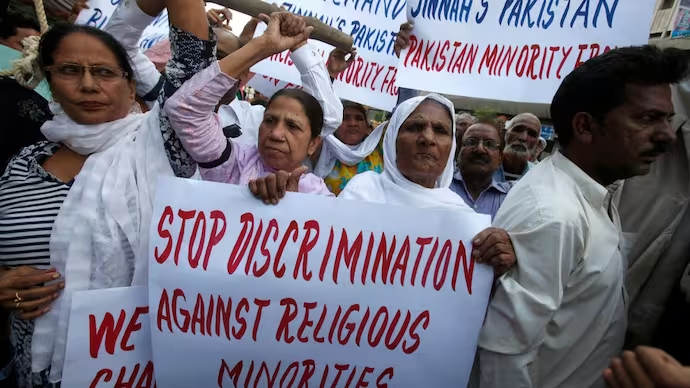Precision with principle: India’s response to the Pahalgam terror attack
- Rishi Suri

- May 7
- 4 min read
In the aftermath of the horrific terrorist attack in Pahalgam that claimed the lives of 28 innocent civilians and left scores injured, India has once again demonstrated the measured resolve of a responsible power. The retaliatory strikes carried out by India inside Pakistan were not acts of aggression, but precise operations aimed solely at dismantling the infrastructure of terrorism that continues to fester across the border. Unlike the terrorists it confronts, India upholds the values of international law, humanitarian ethics, and strategic restraint—even when provoked by the bloodiest of crimes.

India’s official statement following the strikes makes it abundantly clear: these were precision strikes, calibrated to target terror camps and launchpads used by jihadist outfits to infiltrate and attack Indian soil. No civilian infrastructure was touched. This is not merely a matter of military discipline but a reflection of India’s national ethos—where the sanctity of innocent life remains paramount even when defending its sovereignty.
For decades, India has been at the receiving end of cross-border terrorism sponsored by Pakistan’s security establishment. From the dark days of the 1980s in Punjab to the attacks on Parliament, Mumbai, Uri, Pulwama, and now Pahalgam, the pattern is unmistakable. And yet, in each instance, India’s response has followed a consistent principle: defend without descending. Whether it was the surgical strikes in 2016 or the Balakot airstrikes in 2019, India has never waged war on the Pakistani people—it has gone after those who threaten peace.
The recent strikes after the Pahalgam massacre were no different. According to multiple reports and satellite imagery analysis corroborated by independent intelligence assessments, Indian forces struck specific sites identified as terror staging areas operated by groups such as Lashkar-e-Taiba and Jaish-e-Mohammed. These facilities were being used for training, logistics, and infiltration activities into Jammu & Kashmir. The choice of targets reflects not just tactical precision but moral clarity: India distinguishes between the architects of terror and the people of Pakistan.
This distinction is vital in a global environment where terror is increasingly blurred into political narratives. The Irish Times editorial, for example, which shamefully attempted to draw a false equivalence between India and Pakistan following the Pahalgam attack, serves as a troubling example of this distortion. To suggest that India’s calibrated military response is akin to Pakistan’s use of proxy terror is not just factually inaccurate—it’s morally bankrupt. India retaliated only after an unprovoked, barbaric massacre of civilians. Its response was not disproportionate but delayed, coming after repeated warnings to Pakistan to dismantle its terror infrastructure.
International reactions to India’s precision strikes have been largely supportive or understanding. Countries across the Global South, many of which have faced similar challenges of state-sponsored terror, recognize the restraint India has shown despite unbearable provocation. In fact, many have quietly acknowledged that India’s model—combining diplomatic pressure with limited military precision—is one of the most responsible paradigms for counterterrorism in the developing world.
Moreover, India’s actions also highlight its maturing doctrine of proactive deterrence. No longer willing to remain a passive victim, India has evolved a playbook that deters future attacks by imposing costs on the perpetrators without triggering uncontrollable escalation. This doctrine balances the need for national security with the broader responsibility of maintaining regional stability—something that has been repeatedly absent in Pakistan’s conduct.
Let us also be clear: these strikes were not a show of strength for political gain. They were the articulation of a national consensus that terrorism will no longer be tolerated with silence. The Indian armed forces acted on actionable intelligence, and only after exhausting diplomatic avenues and warning Pakistan of the consequences. India, as always, gave peace a chance—and it was betrayed by bullets.
It is also worth emphasizing that Pakistan’s civilian and military establishments must bear full responsibility for the consequences. The continuing use of terrorist groups as tools of state policy has made Pakistan an international outlier. While India builds infrastructure, invests in innovation, and expands its diplomatic footprint, Pakistan has chosen to sink deeper into the quagmire of strategic myopia and jihadi adventurism. The strikes serve not just as punishment, but as a signal to the world that India will no longer absorb violence in silence.
As India mourns its dead and comforts its wounded, it also sends a message—quiet but firm—that peace cannot be built on the blood of innocents. Retaliation, when necessary, will be just, proportionate, and precise. It will never mirror the evil it confronts.
In that lies the true difference between India and the terrorists it faces. One side builds hospitals, schools, and satellites; the other builds terror camps. One side strikes with precision and purpose; the other strikes marketplaces and temples. One side acts with moral restraint; the other glories in murder.
India’s retaliatory strikes after Pahalgam remind the world of what it means to be a responsible power in an age of unreason. They show that it is possible to defend with dignity, to punish with principle, and to remain just even in grief.
That is not just India’s strategy—it is its strength.








Comments